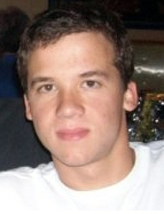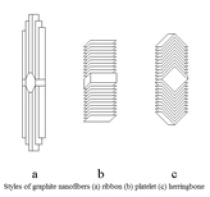Andrew Ferens MSChE Recognized by Catalysis Club of Philadelphia, Carbon Journal
Graduate student Andrew Ferens ChE ’09 took top five billing at the Catalysis Club of Philadelphia’s Graduate Student Poster Contest in October for his research into how the structure of graphite nanofibers affects their catalytic properties. He received a $100 prize.
“It’s really interesting to be involved in a project that there hasn’t been a lot of previous work in,” says Ferens. “I had a great experience at the Catalysis Club. It was one of my first opportunities to discuss this research with anyone outside the ChE Department. I was really pleased to see that people in both academia and industry were really interested in what we’re doing here.”
Ferens first found fascination with graphite nanofibers as an undergraduate student and focused his senior research project on application of graphite nanofibers. As a graduate student, he’s been able to take his research in a new direction, under the advisement of Dr. Randy Weinstein, Professor and Chair of the Department of Chemical Engineering.
Graphite nanofibers are produced from a metallic growth catalyst and consist of layered sheets of graphene (one atom-thick sheets of carbon). Depending on the growth catalyst, the sheets may take different forms, which result in varying edges that can be used effectively for catalysis. At Villanova, Ferens produces fibers in “ribbon,” “platelet,” and “herringbone” orientations. When oxygen is introduced into the system, active sites form at the edges of these sheets, transforming the unprocessed fibers into catalysts.
“We found that there are some pretty significant differences between fiber types – mainly that the herringbone fibers are much more susceptible to the addition of the oxygen groups, leading to much higher conversions compared to the platelet and ribbon fibers,” says Ferens, who is assisted by ChE undergraduate students Rob Orange, Paul Lemaire, and Zahin Rahman.
In addition to the Catalysis Club, Ferens presented his research at this month’s American Institute of Chemical Engineers national conference in Salt Lake City. He will also be featured as an author in an upcoming issue of Carbon, a scholarly journal that publishes original research on carbonaceous solids with an emphasis on graphene-based materials.


